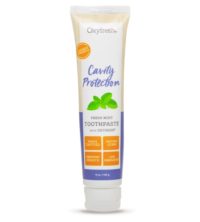
Once you become a parent, you want to do your best to ensure your child is happy and heathy. One area that requires care and attention is the teeth. Your child’s teeth will begin to come in at around six months or so and require constant care for a beautiful and healthy smile. By learning how about how to keep your child’s teeth healthy, you can make smart decisions that ensure teeth come in correctly and good dental habits are developed. With healthy teeth, children will have a good start on their health care as they move into adulthood.
Start Good Habits Early
To begin, you want to start good habits early. As soon as your child’s teeth begin to come in, they need to be cleaned. For babies and smaller toddlers, there are brushes you can place on your finger to rub over the teeth and gums. As your child ages, you can introduce a toothbrush. Continue brushing your child’s teeth until they have an understanding of the process. Once they can do it themselves, be sure to check and make sure they are cleaning the teeth properly.
Teeth should be brushed twice a day, once in the morning and once at night. Flossing must also be completed, but you will have to do this for some time before your child can get the hang of it. Setting good habits now will help your child to start on a path to good oral health care.
Visit the Dentist
Once your child begins to develop teeth, a visit to the dentist is essential. Every year, children should visit the dentist for a cleaning and checkup. Cleaning should be done twice a year. At offices like Peak Family Dental Care, a child’s teeth are x-rayed and reviewed as well as cleaned. During this process, the dentist will be able to see if any issues are present. If cavities or tooth decay are found, solutions will be provided so the health of the teeth remains intact.
As your child ages, the dental hygienist and the dentist can provide tips and techniques on how to brush and floss. With quality care, your child will develop good habits and avoid major issues like tooth decay or cavities.
Fluoride For Your Child’s Teeth

Flouride reatments are offered at the dentist for children to enhance the strength of enamel over time.
Fluoride is supposed to help strengthen the enamel of the teeth and make it harder for acid to penetrate the teeth and cause problems. It is important to learn more about your water supply and find out the fluoride content. It’s recommended by most dentists that you use fluoride toothpaste for cavity protection. We personally love Oxyfresh toothpaste because it’s made in the USA, dentist-approved, gluten free, alcohol free, die free, and made with essential oils. You can grab this toothpaste on Amazon.
Shop Oxyfresh
Avoid Certain Foods and Drinks
It is also important to limit or avoid certain types of food and drink. Sugary food and drink like juice and candy can be hard on the teeth. The sugar content can erode enamel and cause cavities to develop. If you do let your child have such food items, be sure to limit their consumption. When they do eat or drink sugary item, rinse their mouth with water or brush their teeth to remove the sugar from the mouth.
This may be difficult, but it is something to consider. When your child consumes a large amount of sugary substances and the mouth is not rinsed out, the sugar sits on the teeth and damage begins. Baby teeth affected will eventually fall out, but permanent teeth will be affected at a greater cost.
Orthodontic Treatment
As your child ages, the dentist may suggest orthodontic treatments or cosmetic dentistry for crooked or misaligned teeth. Braces and other appliances can easily be used to correct the positioning of teeth. This helps to avoid teeth grinding, speech impediments, upper or lower jaw issues and other problems.
Orthodontists today offer services for younger children so that the teeth are easier to manipulate and move into place. If your dentist suggests orthodontic care, be sure to follow up with an appointment so treatment can be provided.
Following these dental care tips will ensure your child takes care of their teeth and avoids major dental problems as they age into teen and adulthood.



